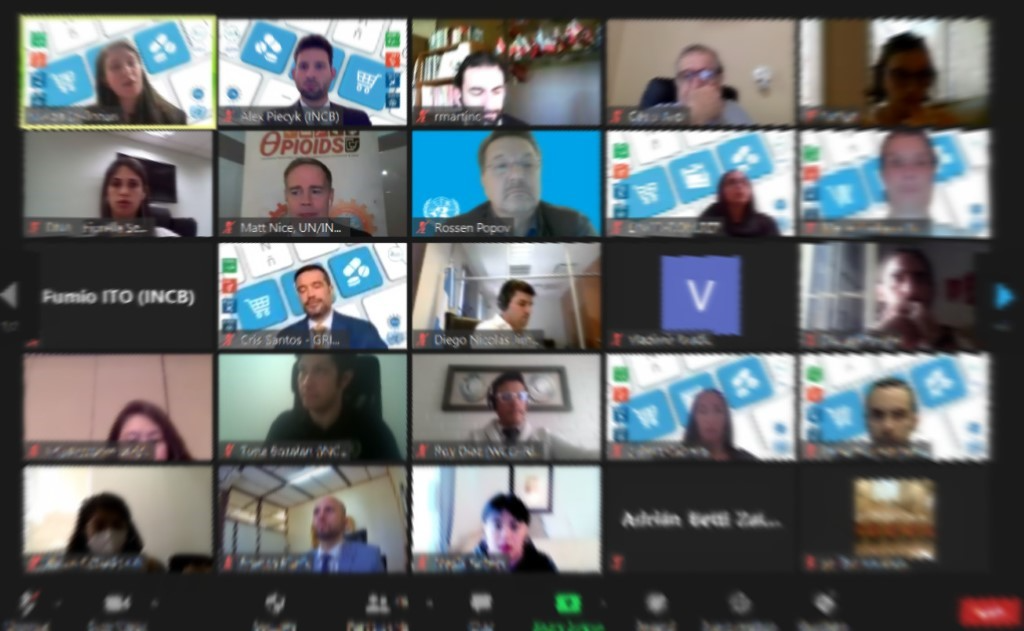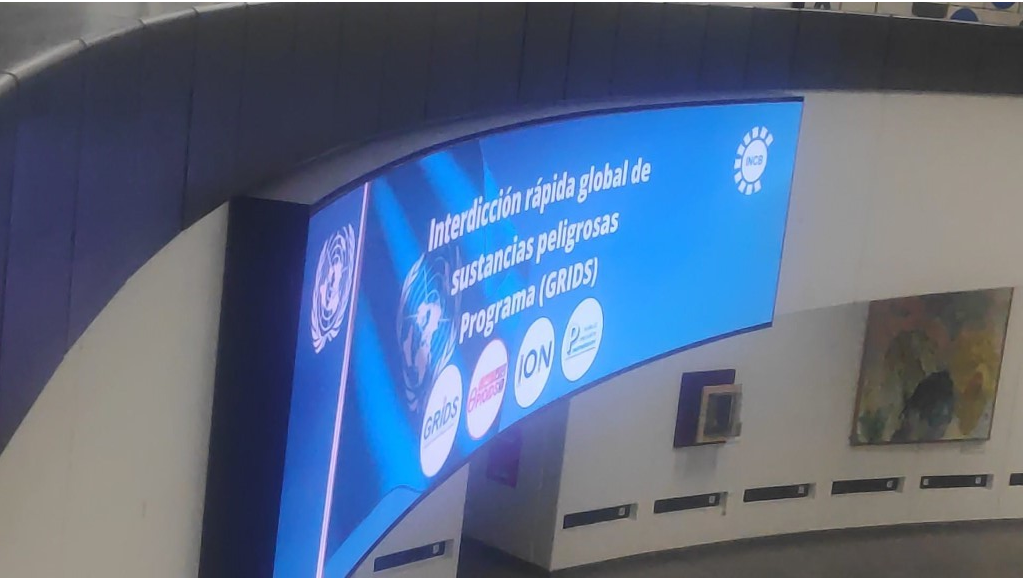Preventing exploitation of legitimate e-commerce partners by fentanyls traffickers in the Americas

VIENNA, 25 January 2021 - The International Narcotics Control Board (INCB) run a four-day expert group meeting on trafficking of synthetic opioids, fentanyls and related dangerous substances through e-commerce platforms in Latin America and the Caribbean. Today online vendors are readily found on e-commerce platforms offering synthetic opioids, fentanyls and related dangerous substances with no legitimate use to consumers in Latin America and the Caribbean. Given their potency, it is easy to traffic fentanyls and related substances in very small amounts. Online e-commerce platforms can therefore play a significant role in preventing the movement of these dangerous substances. The purpose of the meeting was to facilitate regional public-private dialogue, raise awareness, share knowledge and best practices to further enhance cross sector collaboration in the region and recommend practical steps for future actions to ensure safe supply chains.
Over 40 experts from the public and the private sector discussed current regional trafficking trends and the on-going impact of the COVID-19 pandemic on trafficking of synthetic opioids, fentanyls and dangerous substances on regional e-commerce platforms.
In his opening remarks INCB Board Member Mr. Raúl Martín del Campo highlighted " Today, non-scheduled synthetically engineered drugs like fentanyls are made to order online on e-commerce platforms and shipped among the millions of letters and parcels shipped around the world each day. Due to the increasing interconnectedness of the world, every region needs to be prepared for such challenges."
Mr. Roy Diaz, Head of the WCO Regional Intelligence Liaison Office in South America, noted in his analysis "The trends observed in CEN (Customs Enforcement Network) and the risk assessments that the global RILO Network prepares on different areas of illicit trade in support of Customs Administration, indicate that criminal organizations have benefited from disruptions caused by the Covid-19 pandemic in Latin America. The trafficking of synthetic drugs such as fentanyl via postal mail has become an emerging threat due to the explosion of electronic commerce in the region, a trend that has been taking shape since 2017".
He was joined by Cristian Daniel Santos regional advisor for the GRIDS Programme in Latin America who explained, " In broadly addressing the increased use of narcotics in the Latin American and Caribbean region, we have seen many countries go from producing and transit markets to consumer markets. The changing nature of the dynamic opioids and NPS markets are likely to achieve a similar impact in the region. The public and the private sector in the region must therefore remain vigilant and quickly counter this emerging threat to our families and societies."
Knowledge sharing about regional trends, patterns and lessons learned are paramount to interdict the marketing, and movement of synthetic opioids, fentanyls, and related dangerous substances through e-commerce platforms before they reach unsuspecting consumers across Latin America and the Caribbean.

The meeting builds on the previous successes facilitating public-private dialogue to address trafficking on e-commerce platforms already initiated by INCB in 2018 and 2019. The meeting was held under the auspices of the INCB Global Rapid Interdiction of Dangerous Substances (GRIDS) Programme, the Board´s global initiative addressing the international trafficking aspects of emerging dangerous substances. Launched in February 2020, the INCB Global Rapid Interdiction of Dangerous Substances (GRIDS) Programme contributes to implementation of United Nations General Assembly Resolution 73/192 and CND Resolution 62/8, which calls for international cooperation to address and counter the world drug problem, by responding to requests by Member States to enhance their law enforcement capacity to detect and identify new psychoactive substances and promote information sharing and cross-border cooperation.
The meeting was supported with project funding from the Government of Canada.